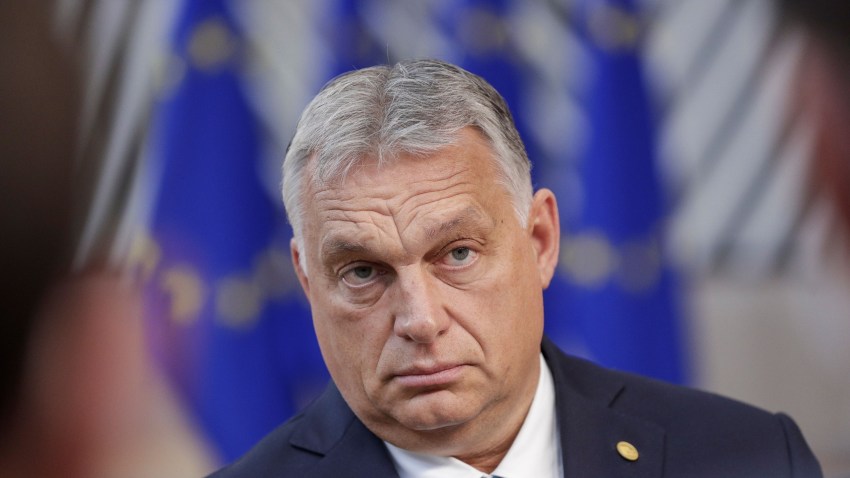Senior officials in the European Commission and lawmakers in the European Parliament are seething at the national governments on the EU Council for what they view as caving to Hungarian Prime Minister Viktor Orban amid the EU’s long-running dispute with Budapest over the rule of law.
In 2020, EU leaders created a rule-of-law conditionality mechanism that allows the European Commission to take measures, including suspending payments from the EU budget, against member states that violate the rule-of-law principles enshrined in the union’s treaty. In recent years, the EU and Hungary have sparred repeatedly over Budapest’s erosion of democratic institutions like an independent judiciary and press, as well as over its failure to tackle systemic graft. The European Parliament voted overwhelmingly two weeks ago to approve a resolution calling on the commission to apply the mechanism after its members declared in a nonbinding resolution in September that Hungary is no longer a fully functioning democracy.
After dragging its feet for several weeks, the commission finally triggered the rule-of-law mechanism last week. Since the outbreak of war in Ukraine, the commission has sought to find a middle ground with Hungary amid its rule-of-law dispute, for fear that the standoff could derail EU unity and solidarity with Ukraine. In recent months, Budapest has delayed or blocked several EU priorities, including an aid package amounting to 18 billion euros for Ukraine allocated for 2023. Thus, EU lawmakers were pleasantly surprised when the commission announced that it will withhold a total of 13 billion euros of EU funds—roughly equivalent to one-fifth of Hungary’s annual budget—from Budapest. The funds include 5.8 billion euros from the EU’s coronavirus economic recovery fund created in 2020, and 7.5 billion euros in so-called cohesion funds intended to close the gap between richer and poorer member states.

